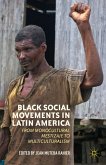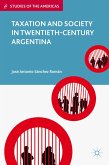This volume unites scholars from Brazil, the U.S. and Europe, who draw on a close re-reading of the Vargas literature, hitherto unavailable or unused sources, and a wide array of methodologies, to shed new light on the political changes and cultural representations of Vargas's regimes, realising why he meant different things to different people.
"Latin American politics moves in cycles, and now is the turn of populism, after decades of military dictatorship and attempts at democratic stabilization. Getúlio Vargas, who ruled Brazil from 1930 to 1954,started as a modernizing politician, embraced fascism in the 1930s, played the democratic game after the war, and died as populist leader in 1954. This book, which looks in depth at his period with freshcontributions and insights from anew generation of scholars, is an excellent introduction for understanding how Brazil became what it is now, and of what the current cycle of populism can bring to the country and the region as a whole."
- Simon Schwartzman, President, Institute for Studies on Labor and Society (IETS), Rio de Janeiro
"Jens R. Hentschke has assembled a cadre of first class Brazilianists to help bring Getúlio Vargas and his era into contemporary focus. All Latin Americanists will benefit enormously from this excellent and comprehensive volume."
- Thomas E. Skidmore, Professor of History Emeritus, Brown University
"This is an innovative collection of essays that examines the way Vargas and his social and political programs shaped the interpretation of an era. The contributing authors view familiar features of the Vargas era through a new lens, such as the effectiveness of Vargas's welfare programs via a discussion of malnutrition, or the way the public has greeted the monument to him that now stands in Rio de Janeiro.In general the book asks, 'How do we read the Carta?' (Vargas's suicide note that he wrote over the last weeks of his life) and in so doing it raises the question, 'How do we read Vargas?'"
- Teresa Meade, Union College, and author of "Civilizing" Rio: Reform and Resistance in a Brazilian City, 1889-1930
- Simon Schwartzman, President, Institute for Studies on Labor and Society (IETS), Rio de Janeiro
"Jens R. Hentschke has assembled a cadre of first class Brazilianists to help bring Getúlio Vargas and his era into contemporary focus. All Latin Americanists will benefit enormously from this excellent and comprehensive volume."
- Thomas E. Skidmore, Professor of History Emeritus, Brown University
"This is an innovative collection of essays that examines the way Vargas and his social and political programs shaped the interpretation of an era. The contributing authors view familiar features of the Vargas era through a new lens, such as the effectiveness of Vargas's welfare programs via a discussion of malnutrition, or the way the public has greeted the monument to him that now stands in Rio de Janeiro.In general the book asks, 'How do we read the Carta?' (Vargas's suicide note that he wrote over the last weeks of his life) and in so doing it raises the question, 'How do we read Vargas?'"
- Teresa Meade, Union College, and author of "Civilizing" Rio: Reform and Resistance in a Brazilian City, 1889-1930








